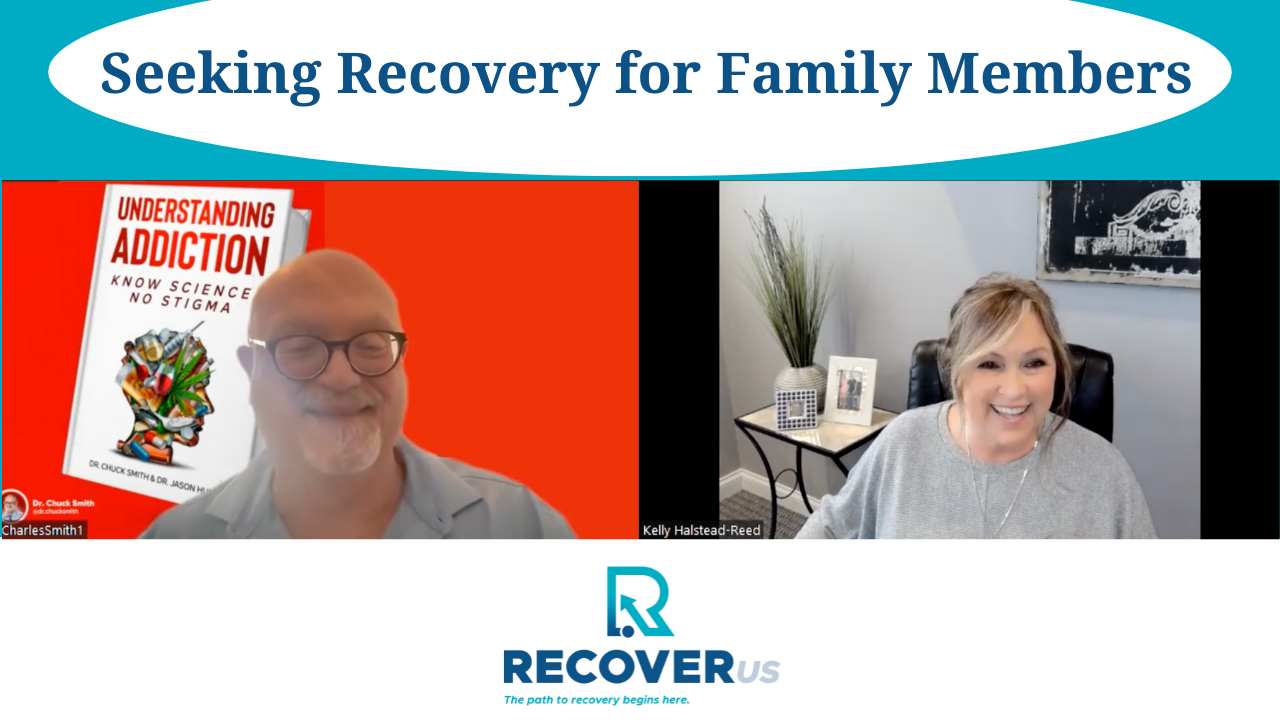
Understanding Addiction with Dr. Chuck Smith
Kelly Reed:
Good evening. This is Kelly from Recover Centers and we’re honored this evening to have with us Dr. Chuck Smith, who has written one of the best books that I have read. I’ve also given this to several other families for them to read explaining addiction. Good evening. How are you?
Dr. Chuck Smith:
I’m fine, Kelly. Nice to meet you. Thanks for having me.
Kelly Reed:
Can you tell us a little bit about your background? Introduce yourself to those that may not know who you are.
Dr. Chuck Smith:
Yes. I’m a physician. I’ve been a physician for a long time. I graduated medical school in 1982, so that dates me a little bit. . I practiced family medicine in West Virginia and Kentucky for 26 years, but in 2009, due to my own addiction to alcohol and opiates, I went to treatment. I was outta medicine for a few years, then went back to the University of Florida and retrained and did an addiction medicine fellowship for two years. And for the last four years, I practiced addiction medicine in South Florida at several different rehabs here. So my work is also my passion. So it’s a good mix. They complement each other well.
Kelly Reed:
Well, I’m so glad that you took the time. And you, along with the other doc decided to write this book. Some of the, probably most important information that I have read about addiction and helping families to understand addiction is the section in which you talk about what addiction does to the brain. Can you give us just a little bit of information on that chapter and explain that to any families that are struggling to understand addiction?
Dr. Chuck Smith:
Yes. and this goes all the way back to when I went to treatment myself, even after practicing medicine for 26 years when I got to treatment and they said, well, you have a disease. And I was like, come on, I, I drank too much and I got hooked on pills. That could happen to anyone, right? Well, no, not right. It doesn’t happen to just anyone. It happens to people who have risk factors, and vulnerabilities, and ultimately have a vulnerable dopamine reward system. So chapter three is about the dopamine reward system of the brain, our survival system of the brain, and the most important brain function that we have. It controls our decisions, our desires, what we eat, and how we drink fluids so that we escape danger. That’s actually the system that keeps our speedy perpetuating too.
So the disease of addiction dysregulates this reward system because of the massive relief of the reward chemical dopamine that comes with all of our mind-altering substances, be it alcohol, opiate, stimulant, etc. So I wanted to get that across to the people that one in 10 of the population is particularly at risk to develop this disease. The only thing that has to happen is exposure to the chemical. Now exposure to the chemical could be avoided the first time, but in our society, most people either as teenagers or a little older sample alcohol, possibly even try marijuana.
Maybe they even try some benzos or something else from a friend’s medicine cabinet. But nine outta 10 of those people don’t develop the disease that I got. And the disease that our patients get, it’s one in 10 and those are particularly vulnerable. So I wrote the book both for people who have our disease and also for families so that they will understand why this happened to their loved one and what they can do to support them. Cause recovery is much, much more than possible. It’s the expected result with compliant patients.
When we get, as you well know from your own treatment center, if you get compliant patients, you get near 100% success rate. And that seems to shock a lot of people in the outside world that they said, no addiction doesn’t have that kinda success. I said, yes, it does. When, when patients do what we ask them to do, they get better.
Kelly Reed:
Right. And that’s so important especially at our clinic at RecoverUs centers. Our treatment primarily focuses on what addiction does to the brain and the brain receptors, along with counseling and helping that patient. One of the questions that I wanted to make sure there are many that I’d love to talk to you about, I’d love to talk to you all day long. But one of the questions that I would like to ask you is, can you explain, or can you address for families and for anyone that’s struggling, how intense withdrawal can help keep someone from seeking recovery?
Dr. Chuck Smith:
Well, intense withdrawals are so painful, and they are at the basic core of our survival. So we have to go against our instincts to not relapse. Every fiber in our, body is begging, for the drug, for relief of those withdrawal symptoms. So even my own self, I went through opiate withdrawal many, many times in my life, and I knew about the receptors.
I knew those things. And I used to think my opiate receptors are screaming for opiates, and they won’t stop. You cannot quieten them. There are many ways to detox. Certainly, it’s controversial from one drug to another drug, but it is important that it’s medically supervised. I don’t, we would never patients to detox on their own.




No Comments
Sorry, the comment form is closed at this time.